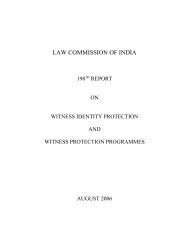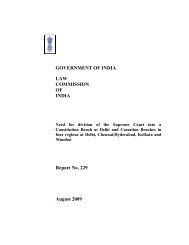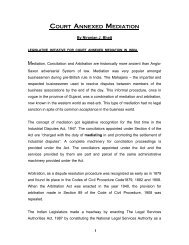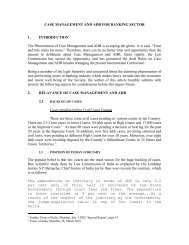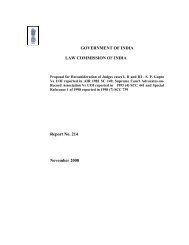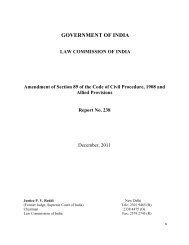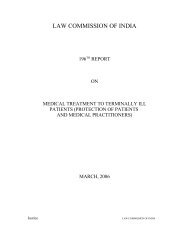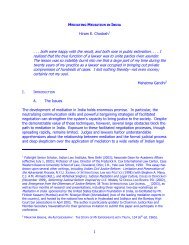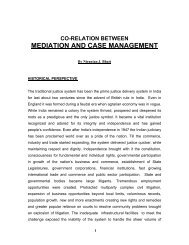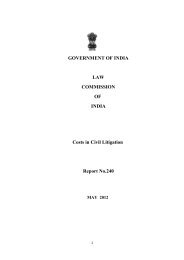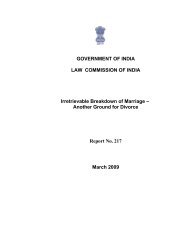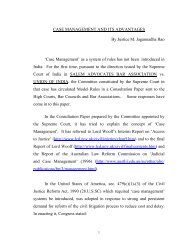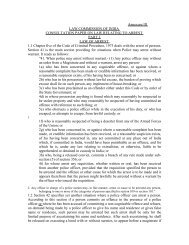The Legal Education - Law Commission of India
The Legal Education - Law Commission of India
The Legal Education - Law Commission of India
You also want an ePaper? Increase the reach of your titles
YUMPU automatically turns print PDFs into web optimized ePapers that Google loves.
56(1) diagnosing a problem, generating alternative solutions and strategies,developing a plan <strong>of</strong> action, implementing the plan and keeping theplanning process open to new information and new ideas.(2) identifying and formulating legal issues, formulating relevant legaltheory, elaborating legal theory, evaluating legal theory andcriticising and synthesizing legal argumentation.(3) knowledge <strong>of</strong> the nature <strong>of</strong> <strong>Legal</strong> Rules and Institutions, knowledge<strong>of</strong> and ability to use the most fundamental tools <strong>of</strong> legal research,understanding <strong>of</strong> the process <strong>of</strong> devising and implementing acoherent and effective research design.(4) determining the need for factual investigation, planning a factualinvestigation, implementing the investigative strategy,memorializing and organizing information in an accessible form,deciding whether to conclude the process <strong>of</strong> fact gathering,evaluating the information that has been gathered, assessing theperspective <strong>of</strong> the recipient <strong>of</strong> the communication; using effectivemethods <strong>of</strong> communication.(5) establishing a counselling relationship that respects the nature andbounds <strong>of</strong> a lawyer’s role; gathering information relevant to thedecision to be made; analyzing the decision to be made; counselingthe client about the decision to be made, ascertaining andimplementing the client’s decision.



